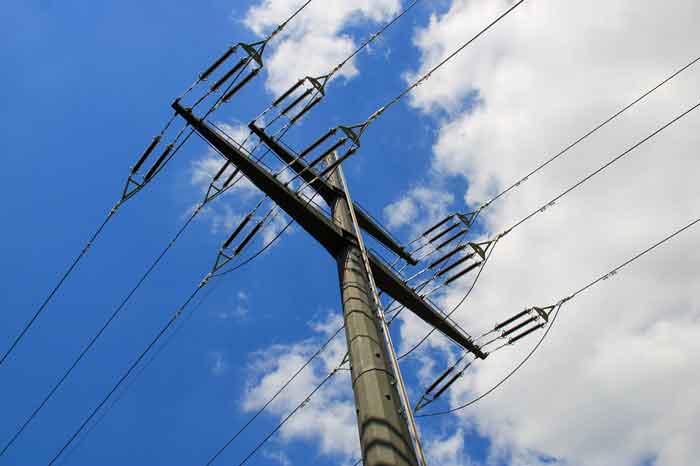Price of power jumps 12 per cent
Opposition politicians immediately accused the Liberal government of a “backdoor energy tax grab.”
The jump in the price of electricity was announced by the Ontario Energy Board, which sets rates for consumers who do not have fixed price contracts.
The energy board said the increase in the regulated price of power will add $7.60 a month, or 8 per cent, to the overall bill of a typical householder who uses 800 kilowatt hours kwh a month.
Consumers now pay 5.8 cents a kwh for the first 600 kwh they use each month in the summer, or the first 1,000 kwh in the winter. Starting May 1, that price rises to 6.5 cents a kwh.
Beyond those threshholds, consumers now pay 6.7 cents a kwh. Starting May 1, theyÂ’ll pay 7.5 cents.
The price increase doesnÂ’t stop there.
Many consumers are now being switched to timeofuse rates, which charge more for power used during peak periods, and less for power used during offpeak periods such as weekends and after 9 p.m.
The new price schedule will boost the offpeak rate to 5.3 cents a kwh from 4.4 cents – a hike of 20 per cent – while the peak rate rises to 9.9 cents from 9.3 cents. The “midpeak” rate remains frozen at 8 cents a kwh.
Energy consultant Bruce Sharp estimated that translates into an overall increase of 9.5 per cent for a typical consumer.
Energy Minister Brad Duguid told the Star that heÂ’s watching the jump in the offpeak rate very carefully. Low offpeak rates are supposed to encourage consumers to shift some of their energy use to times when the power system isnÂ’t under stress.
“I thought it was curious,” he said. “I would want to ensure that it does not indeed impact any of our efforts to shift use.”
Eleven per cent of consumers have signed fixedprice contracts with energy retailers, but they donÂ’t escape higher prices, either.
They are subject to a separate fee, quaintly called the “provincial benefit.” It used to add about one cent per kilowatt hour to a customer’s bill.
But it is adjusted monthly, and in recent months has been mostly in the 3 to 4cent range.
And starting July 1, all consumers will also pay the harmonized sales tax HST on their power bills, adding another 8 per cent to the total.
Conservative energy critic John Yakabuski ripped into the Liberals in the legislature.
“The market price for electricity is at historic lows, but the McGuinty Liberals have added so many regulatory increases, taxes and fees that Ontario families, seniors and businesses now see their electricity bills at historic highs,” he said.
Satinder Chera of the Canadian Federation of Independent Business said high energy prices are an increasing concern for his members.
“We’re not giving our ratepayers the ability to manage their costs,” he added. Many small businesses now being subjected to timeofuse rates can’t switch their business hours to take advantage of low nighttime rates, he said.
Duguid acknowledged in the legislature that prices will rise.
“We know that the cost of energy is going up… but we’re making the tough decisions that we need to make today to ensure that we have a reliable supply for tomorrow,” he said. “In making those tough decisions, we’re growing renewables in this province.”
Renewable energy contracts awarded recently will pay generating companies anywhere from 13 cents to 44 cents a kilowatt hour.
Julie Girvan, energy adviser for the Consumers Council of Canada, said consumers canÂ’t avoid higher prices but said the reasons are not well understood by the public.
“It’s time for government, the energy board and utilities to better communicate with their customers,” she said.
“I think utilities need to look to more cost containment,” she added.
Municipal utilities such as Toronto Hydro have recently been awarded significant rate increases, she noted. Part of the increase is due to the energy board allowing the utilities to earn a higher return on their equity.
She questioned why a municipality like the City of Toronto should be using its electric utility to boost profits by increasing power rates.
The city last year received $70.1 million in interest and dividend payments from Toronto Hydro.
Electricity prices for consumers who donÂ’t buy their power from a retailer will see the rates for the energy portion of their bill jump 12 per cent May 1.
The Ontario Energy BoardÂ’s new rates will push the total monthly bill for a typical consumer up by about 8 per cent, the board said in a release. Then total bill includes charges other than the cost of the energy itself.
Consumers now pay 5.8 cents a kilowatt hour kwh for the first 600 to 1,000 kwh of power they use, depending on the season. TheyÂ’re allowed more power at the low rate in the winter months. They now pay 6.7 cents for any power beyond that threshold.
Under the new rates, theyÂ’ll pay 6.5 cents a kilowatt hour for the first 600 to 1,000 kwh each month, and 7.5 cents a kwh for the remainder.
The energy board says that a consumer who uses 800 kwh of electricity a month will see their bill rise $7.60 a month, or about 8 per cent overall.
The energy board has also approved higher prices for consumers who are billed on time of use rates, which are higher during peak periods and lower on weekends and at night.
The low, offpeak rate will jump to 5.3 cents a kwh from 4.4 cents – a 25 per cent increase.
Opposition politicians at QueenÂ’s Park were denouncing the price increases even before they were formally released at midday.
“Everywhere we turn we see the McGuinty Liberals sticking one more hand in our pockets and one more charge on our hydro bills,” said Conservative energy critic John Yakabuski.
“Ontario families are already paying more, and getting less.”
Consumers who buy their power from retailers at fixed prices arenÂ’t directly affected by todayÂ’s announcement, but theyÂ’re paying higher prices as well.
They pay an extra charge called the “provincial benefit,” which varies from month to month, but has jumped in recent months to 3 to 4 cents a kilowatt hour when it used to be about 1 cent.
Related News

When paying $1 for a coal power plant is still paying too much
SAN JUAN - One dollar. That’s how much an aging New Mexico coal plant is worth. And by some estimates, even that may be too much.
Acme Equities LLC, a New York-based holding company, is in talks to buy the 847-megawatt San Juan Generating Station for $1, after four of its five owners decided to shut it down. The fifth owner, the nearby city of Farmington, says it’s pursuing the bargain-basement deal with Acme to avoid losing about 1,600 direct and indirect jobs in the area.
We respectfully disagree with the notion that the plant is not economical
Acme’s interest comes as others…





